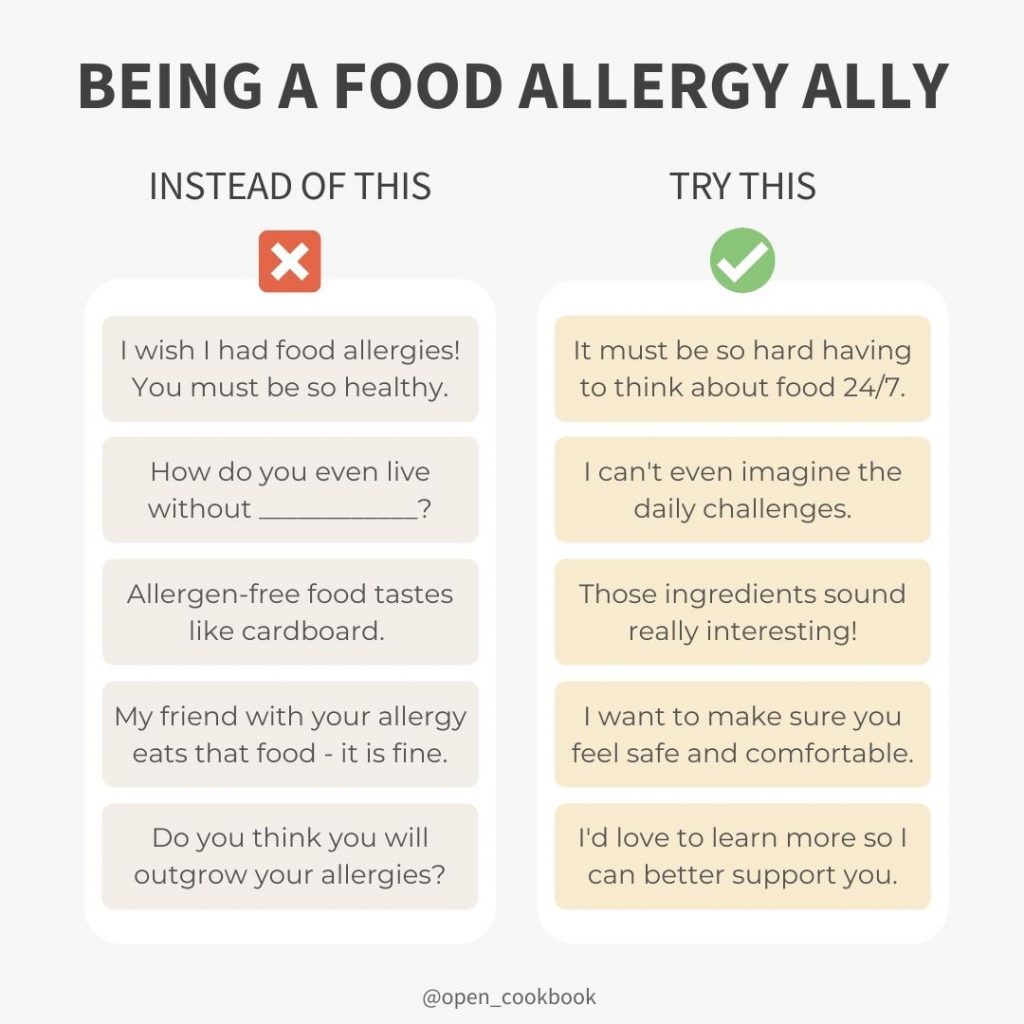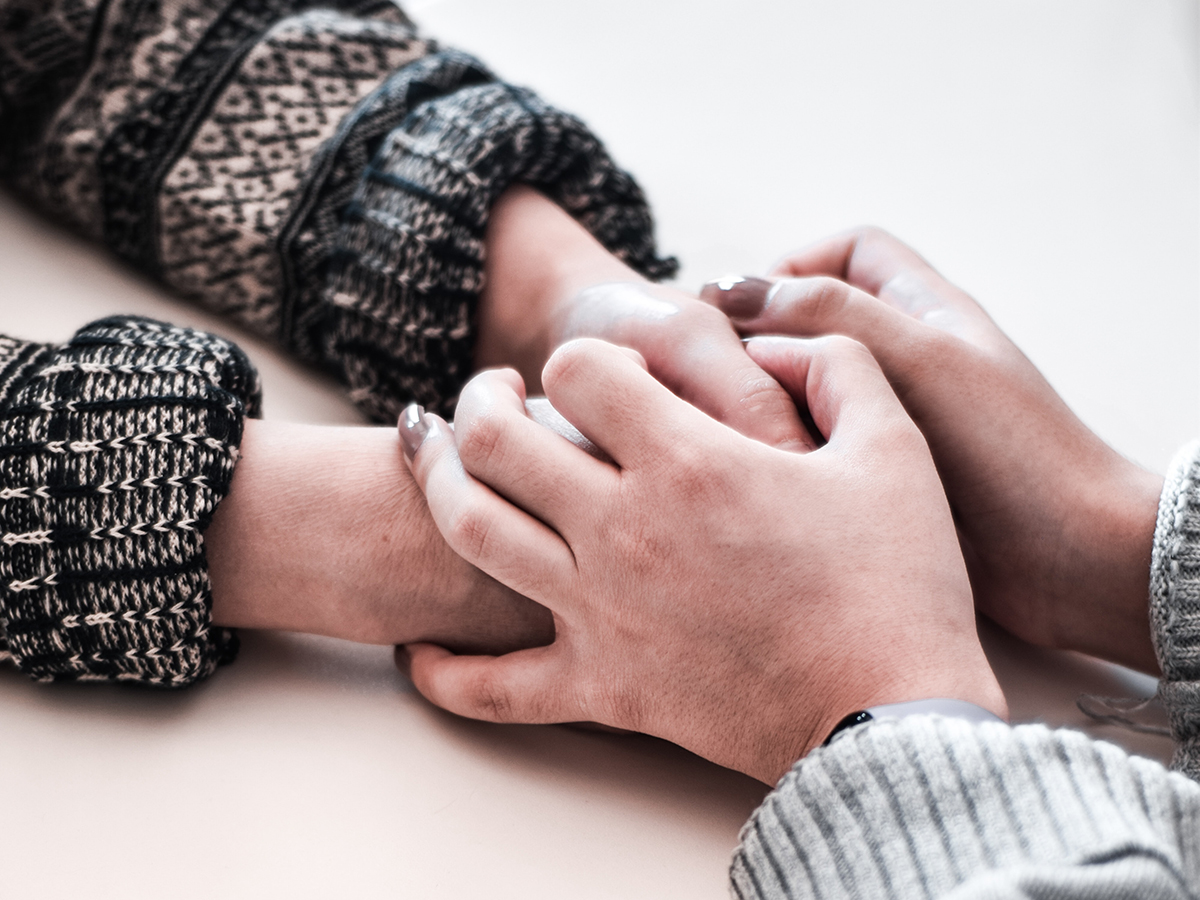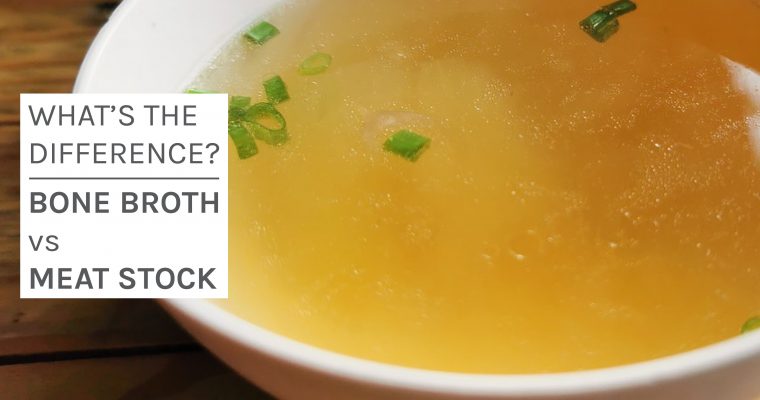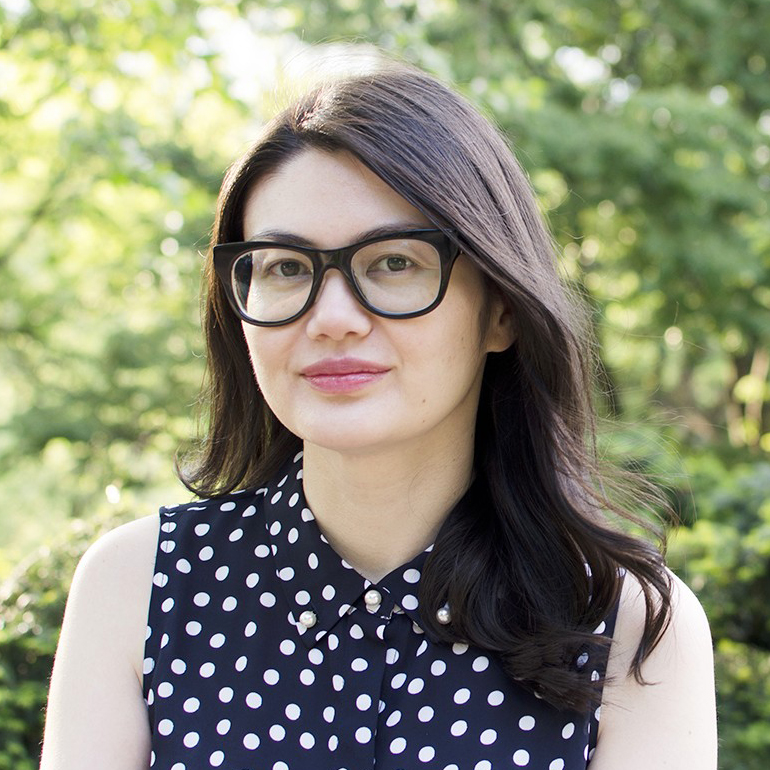Have you ever wondered how to provide better support to a friend or family member living with food allergies, becoming a true food allergy ally?
Unfortunately when living with food allergies, it is very common to encounter people who make assumptions about what it is like to live with food allergies without actually understanding the complicated reality. In fact, people often forget that food allergies are a serious medical condition and something not to joke about.
As someone who lives with EoE, a gluten sensitivity, a shellfish allergy, and multiple autoimmune diseases, I know firsthand how frustrating it can be when people make assumptions about your dietary restrictions.
What is an ally?
“One that is associated with another as a helper : a person or group that provides assistance and support in an ongoing effort, activity, or struggle”
– Merriam-Webster Dictionary
A food allergy ally is someone who takes the time to listen, learn, and advocate. While I don’t expect people who don’t have food allergies to “get it,” I do hope non-allergic people can take a step back and really listen to the range of experiences of individuals and their families who live with food allergies. There are a lot of preconceived notions that simply aren’t true and making unfounded assumptions can be not only emotionally hurtful but might even place someone in a potentially unsafe situation.

1. Food allergies aren’t a fad diet
This point is really important to remember. Food allergies, EoE, Celiac or other autoimmune diseases are serious medical conditions—having to strictly avoid certain foods is not a choice. Avoiding specific foods is medically necessary and definitely NOT part of a “fad diet” to lose weight or “get healthy.” In reality, dietary restrictions do not equate to health. Instead, when living with food allergies, it is especially important to be mindful about eating a diverse diet to prevent potential nutrient deficiencies.
I once had someone tell me, “I wish I had food allergies! That would be such a blessing so I could lose some weight.” This comment is incredibly shortsighted (I was fuming!) and really highlights how little people understand about the seriousness of food allergies.
>> INSTEAD OF SAYING: “I wish I had allergies! You must be so healthy. If I had food allergies, I could lose weight.”
>> TRY THIS: “It must be so hard thinking about food 24/7. I can’t even imagine the amount of planning it must take.”
2. Having food allergies doesn’t mean living with deprivation
There is a misconception among some non-allergic people that if you have food allergies you live a very deprived life. While yes we might have to avoid specific foods and be extra cautious when dining out, that doesn’t mean we are hermits.
Hearing someone say “how do you even live without eating ‘fill in your allergen’ ” or that “they would rather die” than not be able to eat a specific food, is not only frustrating and overly dramatic, but potentially triggering for people with food allergies who might actually have life-threatening allergies to that specific food! Trust me—we much rather be alive than eat our food allergen.
>> INSTEAD OF SAYING: “How do you live without eating ____________? I would rather die than not be able to eat that food.”
>> TRY THIS: “I can’t even imagine the daily challenges you experience. Let me know how I can best support you.”
3. Allergy-friendly food can be delicious and safe
There is nothing more annoying than when non-allergic people hear “gluten-free” or “vegan” and immediately say they could never eat that way and that your food must taste like “cardboard” without even trying it. These negative assumptions about allergy-friendly food can’t be farther from the truth.
In reality, the food I eat is more interesting, diverse, and creative since my EoE diagnosis. Pre-EoE I never tried cassava or tigernut flour, delicious plantains were not on my radar, and it never occurred to me that you can make noodles out of daikon. Before making assumptions that allergy-friendly and gluten-free food is gross and tasteless, keep an open mind and give it a try.
>> INSTEAD OF SAYING: “Allergen-free food tastes like cardboard. It is so gross! I would never be able to eat that.”
>> TRY THIS: “Wow, those ingredients sounds so interesting! I would love to learn more about your favorite safe foods and give them a try sometime.”
4. Food allergies are individual
Remember this very important point—just because your friend with food allergies can eat a specific food, does not mean it is safe for someone else with the same food allergy. Everyone has their own comfort level to what they feel safe eating. Please don’t push food on someone who says “no thank you.” They definitely have a very good reason for turning it down.
>> INSTEAD OF SAYING: “My friend has the same food allergy as you and eats this all the time. You will be fine – don’t worry so much.”
>> TRY THIS: “I want to make sure you feel comfortable. Let’s find food that is safe for you.”
5. Food allergies = chronic health condition
After I was first diagnosed with EoE, a lot of people would tell me that “maybe I will outgrow my reactions” and that I would probably be able to eat that food again one day. While I realize this comment comes from a good place of trying to make people feel better and give some hope, it doesn’t help. In fact, these comments would make me so angry! It felt like people were dismissing my new reality of living with extensive food triggers. I wasn’t at a point of thinking about whether my EoE triggers might change one day. Instead, I was just trying to get through each day and figure out what foods were actually causing me the most pain.
Please remember that food allergies, EoE, and Celiac disease are chronic health conditions. Instead of asking if someone might outgrow their food allergies, just learn to listen to what their current challenges are so you can support them and be a better ally.
>> INSTEAD OF SAYING: “Do you think you will outgrow your food allergies?”
>> TRY THIS: “I’d love to learn more about your food allergies so I can better support you.”




